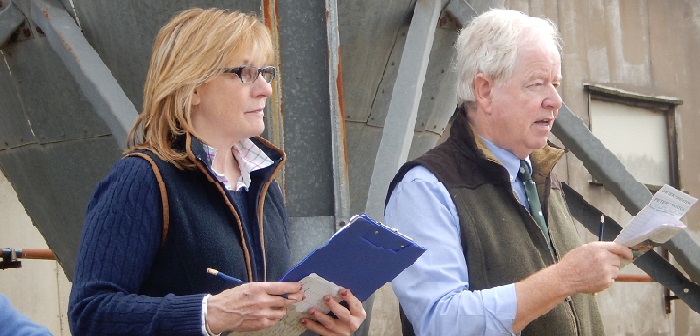Although UK pig prices have remained virtually becalmed at 162.73p, over the Channel, EU mainland prices have in many cases been rising, with the influential German producer price up by 6 cents to €2.02, its highest level so far.
Reports of the effects of the Coronavirus pandemic in the Far East are indicating a slower uptake of pig meat imports due to infrastructure problems across China, as well as people tending to stay at home rather than eating out to reduce the risk of cross contamination infection.
The UK spot bacon market is reflecting a slight shortage of pigs in the system, with deals done in the 163p-167p range, which in most cases is ahead of the SPP and weekly contribution prices have generally remained in the 155p-163p range.
Cull sow prices are reflecting the rise in German pig meat values with UK exporters upping their bids by around 5p/kg. As a result, sows were mainly traded between 119p and 124p/kg and a relatively buoyant trade with heavier sows now worth in excess of £200/head.
Demand has also been helped by a much firmer Euro which, due to the falling value of the pound, saw the Euro traded today at 85.62p compared with 83.15p a week earlier. As they say, every cloud has a silver lining.
Weaner values have eased back, possibly due to concerns about finished pig prices in the months ahead if Coronavirus continues and reduces catering and retail demand.
The latest AHDB 7kg ex-farm average weaner price has slipped by £1.38 to £41.53 but no quotation was available for 30kg pigs, most of which have been traded between £56 and £60/head.
Feed ingredient values have remained at generally similar levels on the week with UK feed wheat traded for April at £156/t and for September at £164/t. Barley values for April have been £135/t with September trading slightly above this at £138/t.
Protein prices have in some cases hardened slightly, with Hipro soya traded for April £304/t and for November-April 2021 at £300/t.
And finally, recent reports are indicating that Russia is continuing to expand domestic pig production for the second year running and have also stepped up their exports where overall tonnages have risen 19% compared to the previous year, much of which was in the fresh and frozen pork category.
With the availability of cheaper cereals, the Russians are in a strong position to undercut the UK prices which could add further downward pressure on to producers returns in the years ahead, at a time when ‘non-meat’ food products are also receiving much attention in the media and from consumers to the detriment of the UK pig industry.




